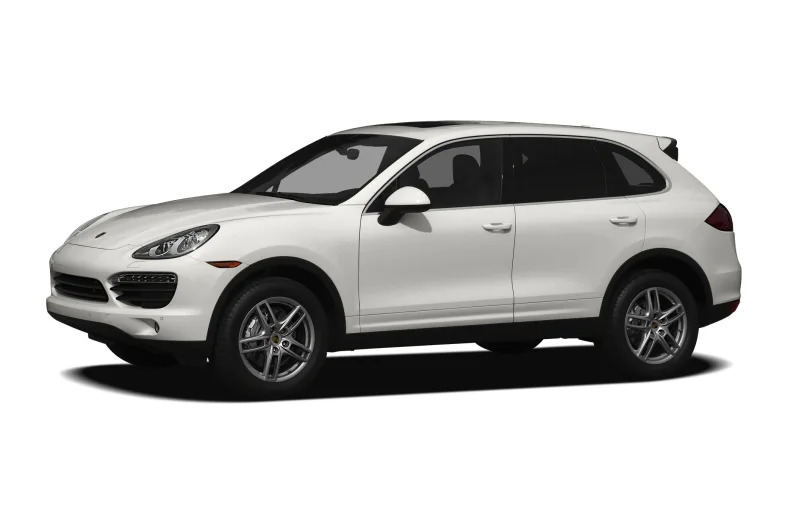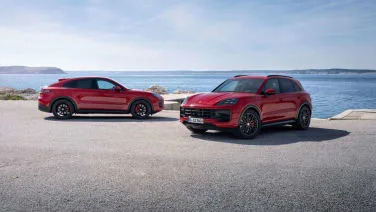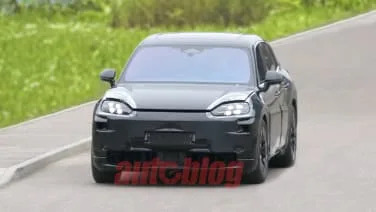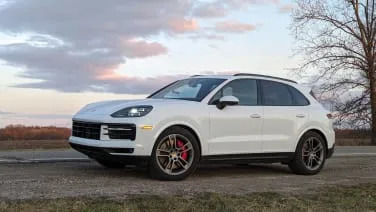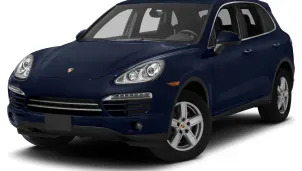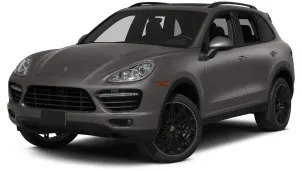2013 Porsche Cayenne
Porsche Finally Brings North Americans An Oil Burner North American purists of the Porsche brand, those who broke into tears and sobbed when a sport utility vehicle and five-door hatchback joined their beloved automaker's lineup, are going to need to suck it up once again – diesel has arrived. While Europeans have been embracing and enjoying the torque and fuel efficiency of oil-burning Porsches since 2009 ("embracing" is actually an understatement – about 50 percent of Cayenne sales are diesel-powered overseas), the all-new Cayenne Diesel is the automaker's first non-gasoline model in our market. Porsche flew us up to Alaska, the least densely populated state in the country, to put its latest Cayenne model through the paces amidst the region's spectacular scenery. It was a calculated move, but brilliantly played. Most thirsty SUVs require the driver to check the fuel gauge on a regular basis, but the miserly Cayenne Diesel returns 30-plus miles per gallon on the open road. Instead of staring at a moving needle, our attention turned to the melting glaciers, massive jagged mountains and abundant wildlife – but more importantly, we enjoyed a full day's worth of spirited seat time on less than half a tank. We have enjoyed a slew of gasoline-powered Cayenne models since the SUV's introduction in 2003. The diversity ranges from the entry-level Cayenne (300-horsepower, 3.6-liter VR6) to the powerful Cayenne Turbo (500-hp 4.8-liter V8). There is even a hybrid gasoline-electric model. Despite their differences and price points, all are performance oriented. The new SUV boasts EPA numbers of 19 mpg city and 29 mpg highway. In contrast, the arrival of the Cayenne Diesel, a second-generation E2 chassis fitted with a diesel engine, is a distinct change of direction – it is oriented towards efficiency. The new SUV boasts EPA numbers of 19 mpg city and 29 mpg highway. Not only do those figures cleanly blow away the standard VR6 model's fuel economy (its EPA ratings are 16 city/23 highway), but they knock the Cayenne Hybrid (20 city/24 highway) down to second place on the environmentally friendly green podium. Under the hood of the Cayenne Diesel is a turbocharged 3.0-liter V6 (the engine should look familiar to Volkswagen and Audi SUV owners, as a variant of the powerplant is currently under the hood of the Touareg TDI and Q7 TDI). The Gen-II engine, unique to Porsche at the moment (Volkswagen and Audi will get it for 2013), is constructed with a vermicular graphite cast iron block and aluminum alloy cylinder heads for strength, durability and low weight. The powerplant features common rail direct injection and a variable-vane turbocharger for increased output and efficiency, and diesel exhaust fluid (DEF) injection to reduce emissions. With a compression ratio of 16.8:1 and a maximum engine speed of 4,600 rpm, Porsche quotes 240 horsepower from 3,500-4,000 rpm and 406 pound-feet of torque between 1,750-2,500 rpm. The V6 is mated to an electronically controlled eight-speed automatic transmission (Porsche calls it Tiptronic S) sending power to all four wheels. …
Full Review
Porsche Finally Brings North Americans An Oil Burner North American purists of the Porsche brand, those who broke into tears and sobbed when a sport utility vehicle and five-door hatchback joined their beloved automaker's lineup, are going to need to suck it up once again – diesel has arrived. While Europeans have been embracing and enjoying the torque and fuel efficiency of oil-burning Porsches since 2009 ("embracing" is actually an understatement – about 50 percent of Cayenne sales are diesel-powered overseas), the all-new Cayenne Diesel is the automaker's first non-gasoline model in our market. Porsche flew us up to Alaska, the least densely populated state in the country, to put its latest Cayenne model through the paces amidst the region's spectacular scenery. It was a calculated move, but brilliantly played. Most thirsty SUVs require the driver to check the fuel gauge on a regular basis, but the miserly Cayenne Diesel returns 30-plus miles per gallon on the open road. Instead of staring at a moving needle, our attention turned to the melting glaciers, massive jagged mountains and abundant wildlife – but more importantly, we enjoyed a full day's worth of spirited seat time on less than half a tank. We have enjoyed a slew of gasoline-powered Cayenne models since the SUV's introduction in 2003. The diversity ranges from the entry-level Cayenne (300-horsepower, 3.6-liter VR6) to the powerful Cayenne Turbo (500-hp 4.8-liter V8). There is even a hybrid gasoline-electric model. Despite their differences and price points, all are performance oriented. The new SUV boasts EPA numbers of 19 mpg city and 29 mpg highway. In contrast, the arrival of the Cayenne Diesel, a second-generation E2 chassis fitted with a diesel engine, is a distinct change of direction – it is oriented towards efficiency. The new SUV boasts EPA numbers of 19 mpg city and 29 mpg highway. Not only do those figures cleanly blow away the standard VR6 model's fuel economy (its EPA ratings are 16 city/23 highway), but they knock the Cayenne Hybrid (20 city/24 highway) down to second place on the environmentally friendly green podium. Under the hood of the Cayenne Diesel is a turbocharged 3.0-liter V6 (the engine should look familiar to Volkswagen and Audi SUV owners, as a variant of the powerplant is currently under the hood of the Touareg TDI and Q7 TDI). The Gen-II engine, unique to Porsche at the moment (Volkswagen and Audi will get it for 2013), is constructed with a vermicular graphite cast iron block and aluminum alloy cylinder heads for strength, durability and low weight. The powerplant features common rail direct injection and a variable-vane turbocharger for increased output and efficiency, and diesel exhaust fluid (DEF) injection to reduce emissions. With a compression ratio of 16.8:1 and a maximum engine speed of 4,600 rpm, Porsche quotes 240 horsepower from 3,500-4,000 rpm and 406 pound-feet of torque between 1,750-2,500 rpm. The V6 is mated to an electronically controlled eight-speed automatic transmission (Porsche calls it Tiptronic S) sending power to all four wheels. …
Hide Full Review
Hide Full Review
Retail Price
$48,850 - $108,750
MSRP / Window Sticker Price
| Engine | 3.0L V-6, 3.6L V-6, 4.8L V-8 |
| MPG | Up to 19 city / 29 highway |
| Seating | 5 Passengers |
| Transmission | 6-spd man w/OD, 8-spd w/OD |
| Power | 240 - 500 hp |
| Drivetrain | all wheel |
| Curb Weight | 4,398 - 4,795 lbs |
Smart Buy Program is powered by 

